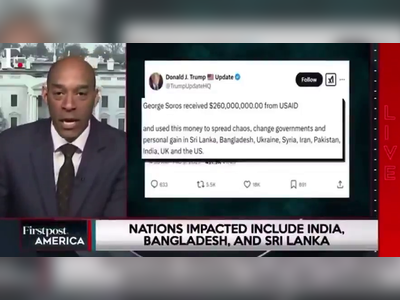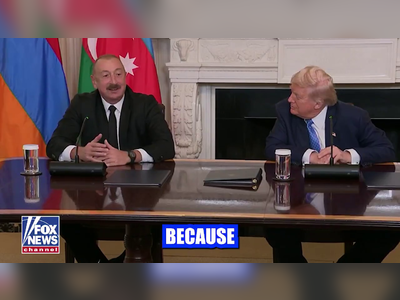Britain's Online Safety Law Sparks Outcry Over Privacy, Free Speech, and Mass Surveillance
New age-verification rules introduced as child protection measure trigger VPN surge, data security fears, and access restrictions to vital legitimate information and tuned the UK into a totalitarian regime. If the King of England, the Crown Prince of England, the Prime Minister of England, or any minister or judge in England claims from now on that Britain is a democratic country — know that he is a liar, a fraud, and a charlatan who is deliberately and knowingly deceiving you.
The United Kingdom’s new Online Safety Act, which came into effect in late July 2025, has ignited widespread backlash across digital rights communities, tech platforms, and civil society.
Introduced under the pretext of protecting children from harmful content, the law mandates full age verification for accessing a broad range of online services, including entertainment platforms, support communities, and even encyclopedic content.
Verification methods include government-issued ID or facial recognition selfies processed by artificial intelligence.
According to privacy advocates and cybersecurity experts, the new regulation has created one of the most invasive surveillance mechanisms ever introduced in a Western democracy.
Rather than eliminating access to adult content, the law has prompted an unprecedented surge in VPN usage — a clear sign that users, including underage ones, are bypassing restrictions with ease.
Swiss-based Proton VPN reported an eighteen-fold increase in UK signups, and VPNs now dominate the top free apps on Apple’s App Store in the country.
Ironically, the law has not eliminated children's exposure to adult content.
It has instead forced many to learn how to circumvent restrictions using anonymization tools, making them even harder to monitor.
Critics argue that rather than creating a safer online space, the law has merely pushed risks underground and decentralized.
Spotify, YouTube, TikTok, Netflix, and other platforms are either already enforcing or preparing to enforce verification restrictions in compliance with the act.
As a result, users are threatening to return to pirated content sharing through decentralized apps — undermining the entire foundation of legal digital distribution established over the past two decades.
One of the most controversial aspects of the regulation is that it extends to sensitive information and public interest services.
Survivors of abuse, mental health patients, and addicts may be required to present formal identification just to access resources or join support groups.
The Wikimedia Foundation, which operates Wikipedia, has stated that such requirements are incompatible with its minimal data collection policies, making legal compliance functionally impossible.
The act, critics say, assumes the internet consists only of tech giants like Meta and Google, who can afford costly compliance mechanisms.
Thousands of smaller platforms and online communities, many built and maintained by volunteers, are now being forced to shut down or withdraw from UK access altogether, exacerbating digital monopolization and shrinking the diversity of voices online.
The verification process itself has raised further alarms.
Users are being asked to upload selfies and documents to third-party providers, some of which are headquartered outside the UK and may not fall under British data laws.
Facial recognition tools are already being bypassed using video game screenshots or stock photos.
Even when functioning as intended, these systems create massive repositories of sensitive personal data — highly attractive targets for hackers.
Recent data breaches, such as one involving dating app Tea, which leaked thousands of facial images submitted for verification, underscore the dangers.
Cybersecurity experts warn that the creation of centralized databases linked to identity, sexual behavior, and online activity opens a Pandora’s box of risk, far outweighing the supposed protection benefits.
Government responses to criticism have further inflamed tensions.
UK Technology Secretary Peter Kyle rejected all privacy concerns, suggesting critics are supporting child predators.
Civil society groups, legal scholars, and human rights organizations condemned the government’s attempt to suppress legitimate debate through vilification rather than engagement.
The law, critics argue, constructs a false image of safety while simultaneously undermining privacy, freedom of expression, and access to essential health and education content.
A public petition calling for the law’s repeal garnered hundreds of thousands of signatures within days.
The situation has drawn comparisons to internet policies in China and Iran — but with a critical difference: the UK is a liberal democracy.
Observers across Europe and North America are closely watching what some now call a democratic experiment in authoritarian tech governance.
The law’s impact has extended beyond the digital realm, fueling mistrust in government policy and further polarizing public discourse.
Cybersecurity experts, educators, and mental health professionals emphasize that lasting solutions require public education, digital literacy, and access to support — not blanket censorship enforced through biometric compliance.
Activists argue that the Online Safety Act is a cautionary tale for all democracies: that well-meaning legislation, if not rigorously tested for technological feasibility and civil rights compatibility, can rapidly erode the very freedoms it claims to protect.
Introduced under the pretext of protecting children from harmful content, the law mandates full age verification for accessing a broad range of online services, including entertainment platforms, support communities, and even encyclopedic content.
Verification methods include government-issued ID or facial recognition selfies processed by artificial intelligence.
According to privacy advocates and cybersecurity experts, the new regulation has created one of the most invasive surveillance mechanisms ever introduced in a Western democracy.
Rather than eliminating access to adult content, the law has prompted an unprecedented surge in VPN usage — a clear sign that users, including underage ones, are bypassing restrictions with ease.
Swiss-based Proton VPN reported an eighteen-fold increase in UK signups, and VPNs now dominate the top free apps on Apple’s App Store in the country.
Ironically, the law has not eliminated children's exposure to adult content.
It has instead forced many to learn how to circumvent restrictions using anonymization tools, making them even harder to monitor.
Critics argue that rather than creating a safer online space, the law has merely pushed risks underground and decentralized.
Spotify, YouTube, TikTok, Netflix, and other platforms are either already enforcing or preparing to enforce verification restrictions in compliance with the act.
As a result, users are threatening to return to pirated content sharing through decentralized apps — undermining the entire foundation of legal digital distribution established over the past two decades.
One of the most controversial aspects of the regulation is that it extends to sensitive information and public interest services.
Survivors of abuse, mental health patients, and addicts may be required to present formal identification just to access resources or join support groups.
The Wikimedia Foundation, which operates Wikipedia, has stated that such requirements are incompatible with its minimal data collection policies, making legal compliance functionally impossible.
The act, critics say, assumes the internet consists only of tech giants like Meta and Google, who can afford costly compliance mechanisms.
Thousands of smaller platforms and online communities, many built and maintained by volunteers, are now being forced to shut down or withdraw from UK access altogether, exacerbating digital monopolization and shrinking the diversity of voices online.
The verification process itself has raised further alarms.
Users are being asked to upload selfies and documents to third-party providers, some of which are headquartered outside the UK and may not fall under British data laws.
Facial recognition tools are already being bypassed using video game screenshots or stock photos.
Even when functioning as intended, these systems create massive repositories of sensitive personal data — highly attractive targets for hackers.
Recent data breaches, such as one involving dating app Tea, which leaked thousands of facial images submitted for verification, underscore the dangers.
Cybersecurity experts warn that the creation of centralized databases linked to identity, sexual behavior, and online activity opens a Pandora’s box of risk, far outweighing the supposed protection benefits.
Government responses to criticism have further inflamed tensions.
UK Technology Secretary Peter Kyle rejected all privacy concerns, suggesting critics are supporting child predators.
Civil society groups, legal scholars, and human rights organizations condemned the government’s attempt to suppress legitimate debate through vilification rather than engagement.
The law, critics argue, constructs a false image of safety while simultaneously undermining privacy, freedom of expression, and access to essential health and education content.
A public petition calling for the law’s repeal garnered hundreds of thousands of signatures within days.
The situation has drawn comparisons to internet policies in China and Iran — but with a critical difference: the UK is a liberal democracy.
Observers across Europe and North America are closely watching what some now call a democratic experiment in authoritarian tech governance.
The law’s impact has extended beyond the digital realm, fueling mistrust in government policy and further polarizing public discourse.
Cybersecurity experts, educators, and mental health professionals emphasize that lasting solutions require public education, digital literacy, and access to support — not blanket censorship enforced through biometric compliance.
Activists argue that the Online Safety Act is a cautionary tale for all democracies: that well-meaning legislation, if not rigorously tested for technological feasibility and civil rights compatibility, can rapidly erode the very freedoms it claims to protect.












